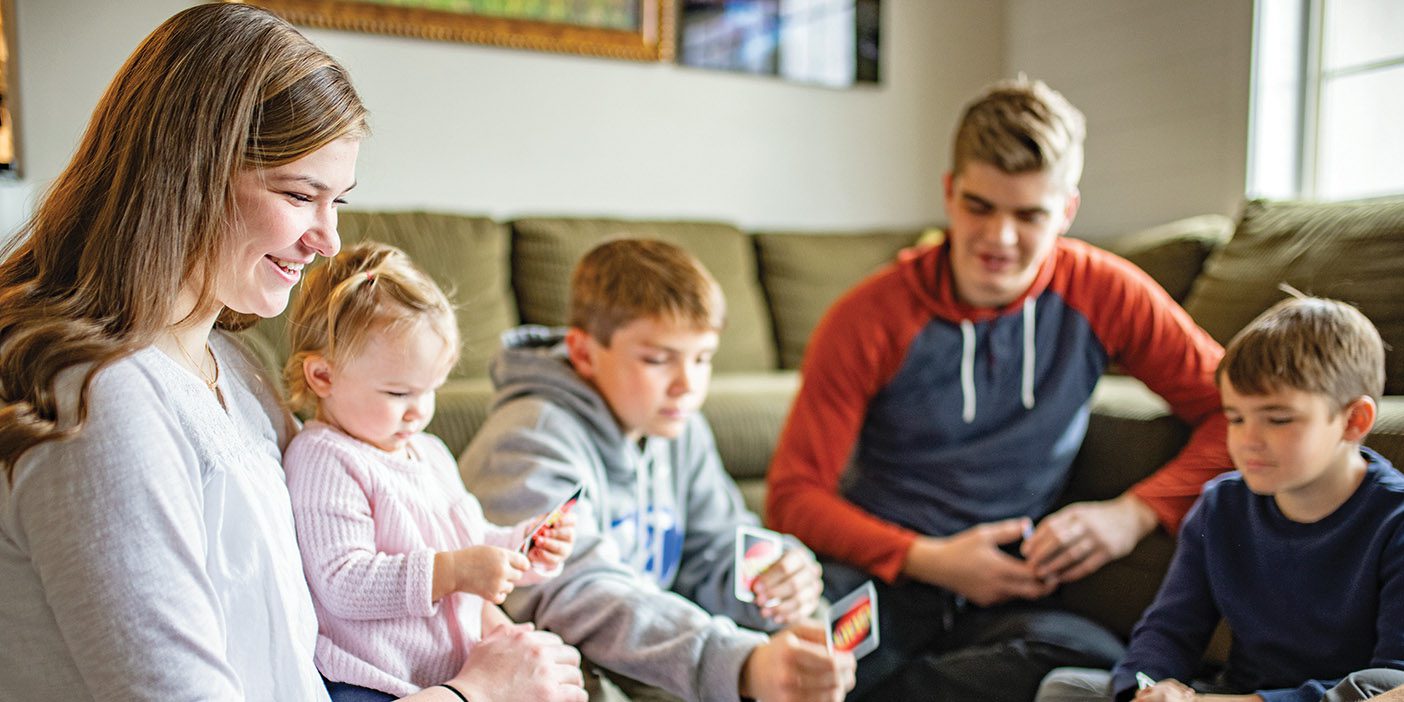
Your teen probably bemoaned missing out on sports, dances, and other activities during COVID-19 shutdowns. But BYU Wheatley Institution research has shown that teenagers fared better overall than you might have expected—and it could be because families have gotten back to the basics.
The research team, led by San Diego State University psychologist Jean M. Twenge and BYU marriage and family life professor Sarah M. Coyne, found significant decreases in depression and loneliness. among US teens during the initial months of the pandemic. In a 2018 national study, 27 percent of teens reported being depressed, compared to 17 percent in spring 2020, when students began attending school from home.
These improvements correlated with dramatic increases in two important predictors of mental health: family time and sleep. Sixty-eight percent of teens said their families had grown closer during the shutdowns, and 84 percent reported sleeping seven or more hours a night—a huge jump from 55 percent in 2018.
“Overall, teens are more resilient than we think they are,” says Coyne. Even so, depression rates are still too high.. BYU marriage and family life professor Jason S. Carroll (BS ’ 96), a researcher on the study and associate director of the Wheatley Institution, calls parents to action. Simple, intentional family rituals, he says—music-free conversations in the car, eating a Saturday breakfast together, sharing chores—can boost teen mental health. Coyne suggests parents limit time on devices before bed. to improve sleep patterns. Schools could contribute to better sleep, too, by pushing start times back.
“We spend a lot of time creating programs and treatments,” Carroll says. “But increasing family time and sleep—these are natural interventions. Everyone can apply them, and they seem to have a huge impact.”












